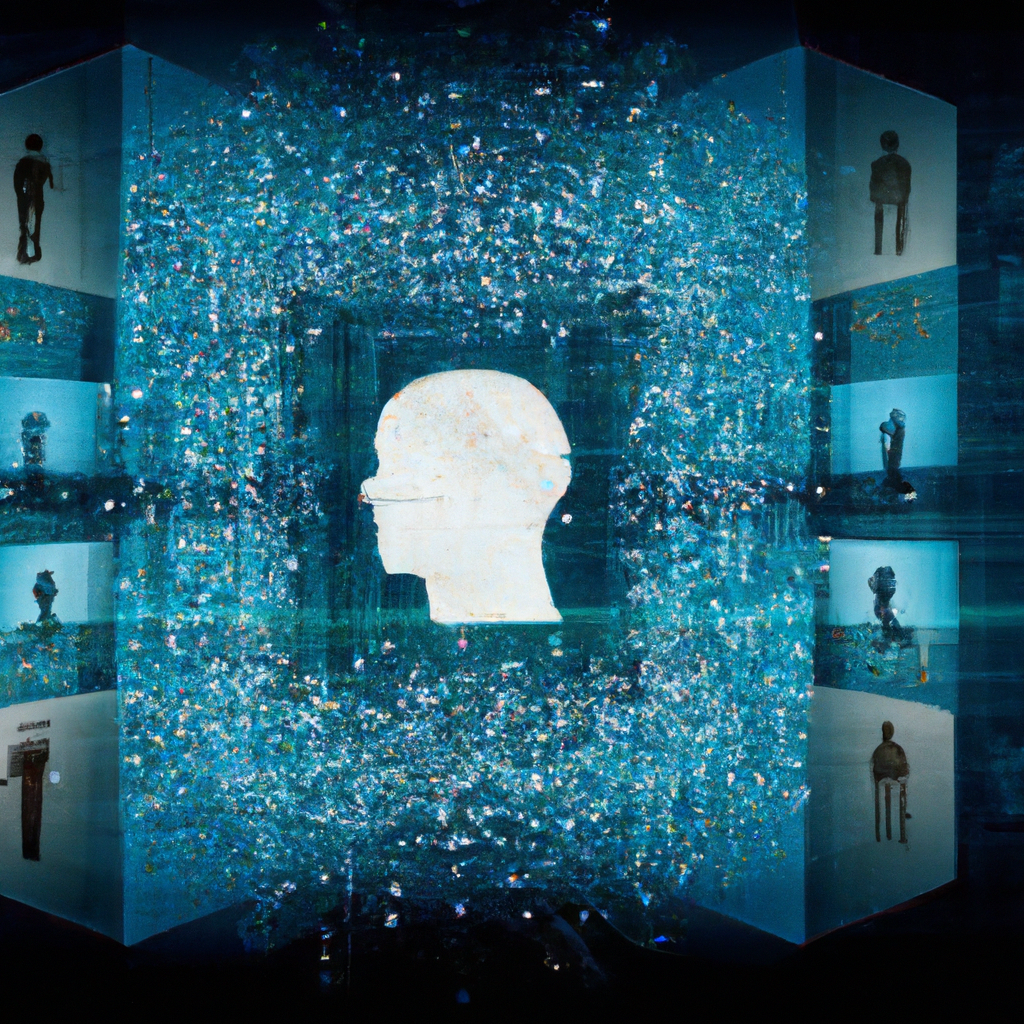In this article, you will explore the crucial question of how we can generate new employment opportunities in the era of artificial intelligence (AI). As technology rapidly evolves, concerns about job displacement arise, but instead of fearing the future, we will delve into potential solutions and strategies. By embracing innovation and harnessing the power of AI, we can uncover remarkable prospects that will not only disrupt industries but also pave the way for the creation of new and meaningful jobs. So, let’s embark on this journey together and discover how we can thrive in the age of AI.

The Current State of Jobs in the Age of AI
Artificial Intelligence (AI) has undoubtedly revolutionized various industries, impacting the employment landscape in both positive and challenging ways. As AI technologies continue to advance at a rapid pace, it is crucial to understand the current state of jobs in the age of AI and explore strategies to create new employment opportunities.
AI’s Impact on Employment
The integration of AI technologies in different sectors has already had a significant impact on employment. While there is concern about job losses due to automation, it is important to recognize that AI also creates new opportunities and enhances existing roles. Tasks that are repetitive and predictable can be automated, allowing human workers to focus on more complex and creative aspects of their jobs.
Challenges Faced by Job Market
Despite the potential benefits of AI, there are challenges that the job market faces. The rapid advancement of AI technology necessitates new skill sets, leaving some individuals at risk of job displacement if they fail to adapt. Furthermore, there is a growing concern about the ethical implications of AI and its potential to perpetuate biases or replace human decision-making entirely.
Future Job Trends
Looking ahead, it is evident that certain job trends will emerge in the age of AI. Roles that require high-level cognitive skills, emotional intelligence, and creativity will remain in demand, as these are areas where human expertise excels. Additionally, there will be an increased demand for individuals with expertise in AI development, data analysis, and cybersecurity. Understanding these future job trends allows us to develop proactive strategies to ensure a thriving job market.
Adapting Education and Training
To address the challenges posed by AI and create jobs in the age of AI, it is crucial to adapt education and training systems. This involves updating curricula, promoting STEM education, and encouraging lifelong learning.
Updating Curriculum for AI
By incorporating AI-related subjects into educational curricula, students can develop the necessary skills to thrive in an AI-driven world. This could involve teaching programming languages, data analysis, and ethical considerations related to AI. Additionally, fostering interdisciplinary learning can enable students to develop versatile skills that are applicable in various industries.
Promoting STEM Education
Fostering Science, Technology, Engineering, and Mathematics (STEM) education is essential for equipping individuals with the skills required in the age of AI. By encouraging students to pursue STEM careers, we can develop a talent pool of professionals capable of driving AI innovation and addressing its challenges. This can be done through scholarships, mentorship programs, and partnerships between educational institutions and technology companies.
Encouraging Lifelong Learning
In the rapidly evolving world of AI, learning should not end with formal education. Encouraging lifelong learning by providing accessible and affordable opportunities for upskilling and reskilling is vital. Online courses, professional development programs, and apprenticeships can enable individuals to acquire new skills and adapt to the changing job market, ensuring continuous employability.
Nurturing Entrepreneurship and Innovation
Promoting entrepreneurship and fostering innovation are key strategies to create jobs in the age of AI. By supporting tech startups, investing in research and development, and promoting innovation hubs, we can cultivate an environment conducive to job creation and economic growth.
Supporting Tech Startups
Tech startups play a crucial role in driving innovation and job creation. By providing financial support, mentorship, and networking opportunities to startups, we can nurture their growth and provide a platform for new job opportunities. Government initiatives, venture capital funding, and incubator programs can help startups successfully navigate the challenges of the AI landscape.
Investing in Research and Development
Investments in research and development are crucial for pushing the boundaries of AI and unlocking its potential. By allocating resources to AI-focused research institutions, universities, and private organizations, we can stimulate technological breakthroughs and drive job creation. Encouraging collaborations between researchers, industry professionals, and policymakers can further expedite the translation of research findings into practical applications.
Promoting Innovation Hubs
Creating innovation hubs allows for collaboration and knowledge sharing, fostering the development of AI-driven solutions and job creation. By bringing together entrepreneurs, researchers, investors, and policymakers in these hubs, we can create a stimulating ecosystem that supports the growth of emerging technologies. These hubs can serve as centers of excellence, attracting talent and fostering a culture of innovation.
Restructuring Workforce Policies
To ensure that the workforce remains adaptable and resilient in the age of AI, it is essential to restructure workforce policies. This can involve implementing flexible work arrangements, reskilling and retraining programs, and establishing social safety nets.
Flexible Work Arrangements
Flexible work arrangements, such as remote work and flexible hours, enable individuals to have a better work-life balance while harnessing the benefits of AI technologies. By embracing modern work practices, organizations can attract and retain talent, creating a positive work environment that embraces innovation and productivity.
Reskilling and Retraining Programs
To address the skill gaps created by AI technologies, reskilling and retraining programs are necessary. These programs should be designed to equip individuals with the skills needed for emerging job opportunities. Governments, educational institutions, and private organizations can collaborate to develop comprehensive programs that support individuals in transitioning to new careers or adapting their current skills to fit the evolving job market.
Social Safety Nets
As AI technologies continue to disrupt industries, it is critical to establish social safety nets that provide support and security to affected workers. This can involve unemployment benefits, job placement services, and income support programs. By prioritizing the well-being of individuals affected by AI-driven job disruptions, we can ensure a smoother transition and minimize the negative impact on livelihoods.

Promoting Collaboration Between Humans and AI
Rather than viewing AI as a threat, promoting collaboration between humans and AI can unlock its full potential while creating new job opportunities. Augmentation vs. automation, developing ethical AI practices, and creating AI-human hybrid jobs are key considerations in this aspect.
Augmentation vs. Automation
A key distinction to make is between augmentation and automation. While automation aims to replace human tasks entirely, augmentation focuses on enhancing human capabilities with AI technologies. By embracing augmentation, we can leverage AI to enhance productivity, decision-making, and innovation, allowing humans to focus on tasks that require emotional intelligence, critical thinking, and creativity.
Developing Ethical AI Practices
Addressing ethical considerations is crucial to ensure that AI technologies serve the best interests of humanity. Implementing guidelines and standards for the development and deployment of AI can mitigate risks associated with bias, privacy infringement, and potential harm to individuals or society as a whole. Ethical AI practices promote transparency, fairness, and accountability, fostering trust between humans and AI.
Creating AI-Human Hybrid Jobs
While automation may replace some jobs, it also creates opportunities for AI-human hybrid jobs. These roles involve collaboration between humans and AI systems, leveraging the unique strengths of both. For example, AI can assist healthcare professionals in diagnosis and treatment decisions, enhancing the accuracy and efficiency of medical care. By encouraging the creation of AI-human hybrid jobs, we can merge the capabilities of AI with human expertise, leading to enhanced productivity and job satisfaction.
Creating Jobs in AI Development
The development of AI itself offers significant job opportunities. AI research and development, infrastructure development, and the establishment of AI ethics and regulation frameworks are areas that require skilled professionals and can contribute to job creation.
AI Research and Development
AI research and development serve as the foundation for innovation and job creation. By investing in AI research institutions and supporting academic programs, we can contribute to advancements in AI technology. Researchers, data scientists, and engineers are needed to explore new algorithms, develop AI models, and push the boundaries of what AI can achieve, creating new job opportunities in the process.
Infrastructure for AI
The implementation of AI requires robust infrastructure to support its operations. This includes hardware, software, and networking systems that can handle vast amounts of data and process complex algorithms. Infrastructure development, maintenance, and optimization necessitate skilled professionals in areas such as data management, cybersecurity, and system integration, presenting job opportunities in these domains.
AI Ethics and Regulation
As AI continues to evolve, there is an increasing need for ethical frameworks and regulations that ensure its responsible use. AI ethics professionals, policymakers, and legal experts are crucial in establishing guidelines and policies that govern the development, deployment, and accountability of AI technologies. By creating job roles centered around AI ethics and regulation, we can ensure that AI is harnessed for the benefit of humanity.

Fostering Job Creation in Emerging Industries
Alongside AI, emerging industries present opportunities for job creation. Fostered growth in renewable energy, cybersecurity, and bioinformatics can create significant employment prospects while addressing global challenges.
Renewable Energy
The transition to renewable energy sources is essential for mitigating climate change. This transition offers substantial job creation potential, including roles in renewable energy generation, installation and maintenance, grid optimization, and energy storage. By investing in renewable energy infrastructure and attracting talent to this sector, we can simultaneously address environmental concerns and create employment opportunities.
Cybersecurity
As the digital landscape expands, safeguarding digital assets and protecting sensitive information becomes increasingly vital. To counteract cybersecurity threats, skilled professionals in the field are necessary. Job opportunities in cybersecurity include roles such as ethical hackers, security analysts, and incident responders. By fostering growth in the cybersecurity industry and providing the necessary training and education, we can create a secure digital environment while creating jobs.
Bioinformatics
The field of bioinformatics combines biology, computer science, and statistics to analyze and interpret biological data. In the age of AI, bioinformatics is becoming indispensable for understanding complex biological systems and developing innovative solutions in areas such as healthcare, agriculture, and pharmaceuticals. By investing in bioinformatics research, education, and infrastructure, we can create job opportunities for bioinformaticians, data scientists, and computational biologists.
Building Resilience in Traditional Industries
While emerging industries offer substantial job creation prospects, it is equally important to build resilience in traditional sectors. Upskilling the workforce in traditional industries, implementing technological solutions, and transitioning to hybrid roles are strategies to ensure their sustainability.
Upskilling Workforce in Traditional Sectors
Traditional sectors such as manufacturing and agriculture can benefit from upskilling initiatives. By providing training programs that incorporate AI technologies, employees in these sectors can acquire new skills that enhance productivity, safety, and efficiency. Upskilling the workforce helps transition traditional industries into the age of AI, creating adaptable and future-proof job roles.
Implementing Technological Solutions
Applying AI technologies and automation in traditional industries can drive efficiency and create new job opportunities. For example, integrating AI-powered robotics in manufacturing can streamline production processes and require skilled technicians to operate and maintain these systems. Implementing technological solutions facilitates the evolution of traditional industries, making them more competitive and resilient.
Transitioning to Hybrid Roles
Hybrid roles that blend traditional skills with AI competencies can bridge the gap between traditional industries and AI-driven technologies. For instance, individuals in customer service roles can develop AI expertise to enhance customer interactions and improve service efficiency. By facilitating the transition to hybrid roles, traditional industries can harness the benefits of AI while maintaining and creating new job opportunities in their respective fields.

Promoting Diversity and Inclusion
In the age of AI, it is crucial to prioritize diversity and inclusion to create an inclusive workforce that benefits from different perspectives and experiences. Addressing bias in AI, promoting equal opportunities in the tech industry, and fostering diverse workforces have immense value.
Addressing Bias in AI
AI systems are only as unbiased as the data they are trained on. It is crucial to address and mitigate biases in AI algorithms to ensure fairness and prevent discriminatory outcomes. By promoting diversity in AI development teams, adopting inclusive datasets, and conducting unbiased algorithm audits, we can reduce the risk of AI exacerbating societal biases and create AI systems that are fair and equitable.
Equal Opportunities in Tech
Equal access and opportunities for all individuals in the tech industry are necessary for fostering innovation and creating a diverse workforce. By dismantling gender and racial barriers, organizations can attract and retain talent from underrepresented groups. Implementing inclusive hiring practices, mentorship programs, and fostering supportive work environments are crucial steps in creating equal opportunities that benefit both individuals and the industry as a whole.
Diverse Workforce Benefits
A diverse workforce brings numerous benefits, including increased creativity, improved problem-solving capabilities, and enhanced innovation. By cultivating an inclusive environment where diverse voices are heard and valued, organizations can tap into a wide range of perspectives, resulting in more robust and holistic solutions. Harnessing the power of diversity can ultimately lead to the creation of more effective AI technologies and a richer job market.
Reevaluating Economic Systems and Policies
To adapt to the age of AI, reevaluating economic systems and policies is essential. Universal Basic Income (UBI), job guarantees, and sustainable economic models are potential strategies to address the changing employment landscape and ensure economic stability.
Universal Basic Income
UBI is a proposed economic concept that guarantees a certain level of income to every individual, regardless of their employment status. By providing a safety net that ensures basic financial security, UBI can mitigate the risks posed by job displacements resulting from AI and automation. It enables individuals to pursue entrepreneurship, engage in lifelong learning, and explore creative endeavors, fostering a dynamic and adaptable workforce.
Job Guarantees
Job guarantees are an alternative approach to ensure employment opportunities in the age of AI. This involves government-led initiatives that guarantee a job to every individual who desires one, regardless of economic conditions. Job guarantees create a sense of stability and security, reducing the economic uncertainties associated with potential job displacements. Such programs can focus on the creation of roles that address social and environmental needs, allowing individuals to contribute meaningfully to society.
Sustainable Economic Models
Ensuring a sustainable economic model that accommodates the changes brought about by AI is vital. This can involve promoting environmentally sustainable practices, reducing income inequality, and embracing circular economies that prioritize resource efficiency. A sustainable economic model focuses on long-term prosperity and job creation, fostering a harmonious coexistence between AI-driven technologies and human well-being.
In conclusion, the age of AI presents both opportunities and challenges for jobs and employment. By recognizing the current state of jobs, adapting education and training, nurturing entrepreneurship and innovation, restructuring workforce policies, promoting collaboration between humans and AI, creating jobs in AI development, fostering job creation in emerging industries, building resilience in traditional industries, promoting diversity and inclusion, and reevaluating economic systems and policies, we can navigate these challenges and harness the potential of AI to create a thriving job market. It requires a comprehensive and collaborative effort from governments, organizations, educational institutions, and individuals to ensure a prosperous future in the age of AI.










